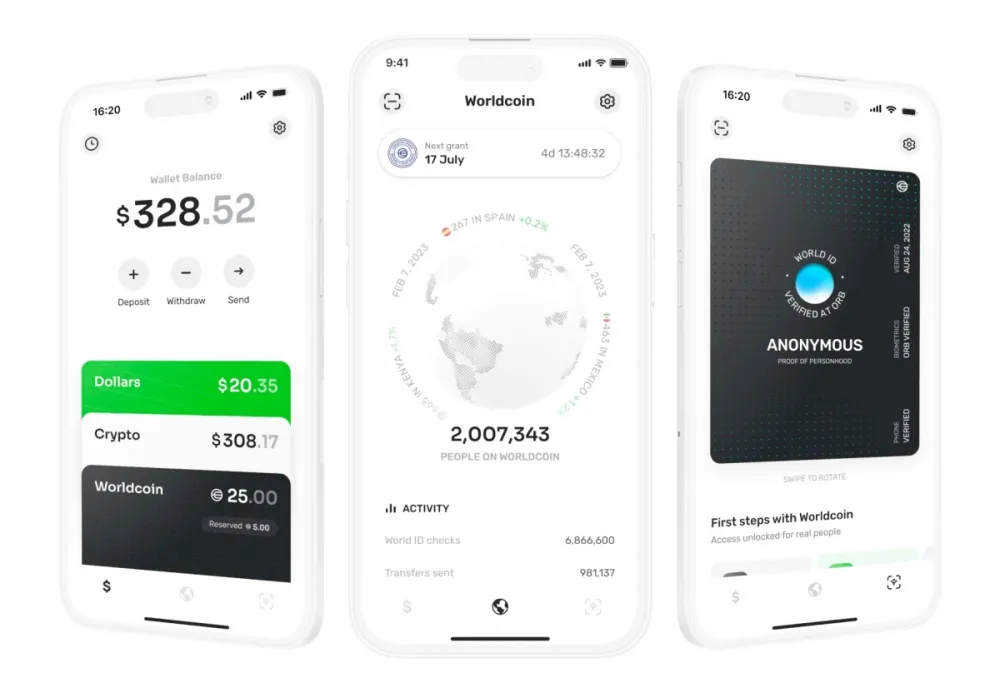Co-founded by the CEO of OpenAI launches the cryptocurrency project Worldcoin
Founded in 2019 by OpenAI CEO Sam Altman and Caltech researcher Alex Blania, and backed by investment from a16z, the tech startup Tools for Humanity has launched its cryptocurrency project, Worldcoin. Fusing iris biometric recognition technology, Worldcoin has officially commenced operations as of July 24th, following the conclusion of its preliminary beta testing phase.

The operational constituents of Worldcoin comprise the WLD token and World ID digital identity, the latter of which necessitates registration through the Worldcoin project’s iris scanning equipment, Orb, to acquire.
During the prior beta testing phase, Tools for Humanity declared the deployment of 200 Orbs for application and registration, aggregating approximately two million users. It anticipates providing 1500 Orbs by the end of this year, facilitating usage across 35 cities in 20 different countries and regions.
In addition, Tools for Humanity plans to unveil the SDK development tools of the Worldcoin project service, enabling an array of developers to incorporate the World ID digital identity system into their Apps or services.
Over the next 15 years, Tools for Humanity aims to distribute 10 billion WLD tokens, currently retaining about 20% of the issued quantity. Owing to the existing nebulous regulatory stance of the United States towards cryptocurrency, the Worldcoin project will not be launched within the US for the time being.
At this juncture, Tools for Humanity is providing Orbs in pop-up form in various cities. Between May and July, these appeared in Asian cities like Seoul, South Korea, and Tokyo, Japan, among others, including London, UK, and Dubai. Flash offerings were also made available in New York and San Francisco in the United States.
Through the introduction of WLD tokens and World ID digital identity, Tools for Humanity envisions users maintaining authentic identities in the virtual world and the internet. Therefore, iris scanning verification is required at the time of registration, ensuring individual authenticity. It also serves as a form of identity declaration amid the inundation of artificial intelligence applications in the future. Furthermore, it facilitates diverse transactions in the virtual world through WLD tokens.






